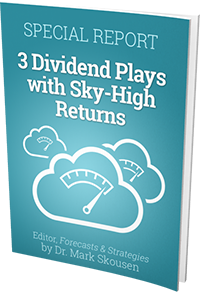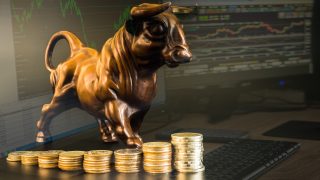Fixed income investing is designed to generate a specific level of payouts, while providing diversification, capital preservation and potential tax breaks.
Government and corporate bonds, certificates of deposit (CDs) and money market funds are among key kinds of fixed income investing. Fixed income investing offers a steady stream of payouts with less risk than stocks.
What Is the Difference Between Fixed Income Investing and Equity Securities?
Fixed income investing securities are debt instruments that pay interest to investors along with the return of the principal amount when the bond matures. Equity, on the other hand, is issued in the form of company stock and represents a residual ownership stake in the firm, and is not debt. Equity does not have a maturation date. While equity may pay a dividend, investors are not guaranteed payouts. In general, equity is a higher risk/higher return security than a company’s bonds.
Fixed Income Investing: Potential Benefits
Depending on the investor’s financial goals, fixed income investments can offer many potential benefits.
Capital Preservation
Capital preservation means protecting the absolute value of your investment via assets that have a stated objective of return of principle. Investors who are closer to retirement may rely on their investments to provide income.
Fixed income investing typically carries less risk, therefore, these assets can be a good choice for investors who have less time to recoup losses. However, investors should be mindful of inflation risk, which can cause the investments to lose value over time.
Diversification
Fixed income is broadly understood to carry lower risk than stocks. This is because fixed income assets are generally less sensitive to macroeconomic risks, such as economic downturns and geopolitical events.
If an investor is seeking to grow his or her wealth investments over time to save for retirement or other long-term goals, that person probably holds a significant amount of stock. But by allocating a portion of one’s portfolio to fixed income investments, risk potentially can help to offset losses when stock markets swing.
Income Generation
Fixed income investments can help you generate a steady source of income. Investors receive a fixed amount of income at regular intervals in the form of coupon payments on their bond holdings. In the case of many municipal bonds, the income is exempt from taxes.
Total Return
Some fixed income assets offer the potential to generate attractive returns. Investors can seek higher returns by assuming more credit risk or interest rate risk.
Fixed Income Investing: Risks
There are seven risks associated with fixed income investments which can impact the market value and cash flows from the securities.
Liquidity Risk
Liquidity risk is the chance that an investor might want to sell a fixed income asset, but they are unable to find a buyer. Therefore, the bond owner may have to sell a bond below its true value.
Liquidity can be defined as the size of the spread between the ask price and the bid price. The ask price is the minimum price a seller is willing to sell a security for, while the bid price is the maximum price a buyer is willing to spend on the security. The higher the spread between the bid and the ask price, the lower the liquidity and the higher the liquidity risk.
Credit Risk
Credit risk includes default risk and inferior performance. Default risk is the possibility that the issuer will not pay the principal or coupon for the bond. The risk of inferior performance depends on the performance of other, similar bonds.
Inflation Risk
The inflation posed to purchasing power risk is the potential for the cash flow from securities to lose value amid rising rates. For example, if the coupon rate for a bond is 5% but the inflation rate is 6%, then the coupon will have relatively less value. Since the interest rate or coupon rate of the securities is fixed, their prices are heavily influenced by inflation rates.
Exchange Rate Risk
Exchange rate risk measures how cash flows from securities can lose value after exchanging one currency for another. Keep in mind that the exchange risk is constantly changing. If a British pound depreciates against the U.S. dollar, then fewer dollars will be received. On the other hand, if the pound appreciates against the dollar, then the investor will receive more dollars.
Volatility Risk
The volatility risk is the possibility that a security will lose amid market swings. This occurs when a bond is embedded with an option. As volatility increases, the value of the option increases as well. In the case of a callable bond, as the value of a call option increases, the value of the bond decreases. So, the bond is exposed to volatility risk.
Interest Rate Risk
There are two key types of interest rate risk: the level risk and yield curve risk. Both have a potentially negative effect on the value of a bond. As the level of interest rates rise, the value/price of the bond decreases. This is known as the inverse relationship between bond value and interest rates.
Also, the investor’s capital is tied up in the investment, and they cannot put it to work earning higher income without taking an initial loss.
Reinvestment Risk
Reinvestment risk arises when reinvesting the income received from securities. To reduce reinvestment risk, it is beneficial if interest rates increase. When reinvesting proceeds from investments, it is beneficial to have a higher interest rate, as the investor will then obtain higher returns.
Fixed Income Investing: The Bottom Line
Fixed income refers to debt investments that pay a fixed rate of interest, along with the return of the principle loaned upon maturity. These include different types of bonds and certificates of deposit. Fixed income as an asset class is generally less volatile than equity (stocks), and is considered to be more conservative. A well-diversified portfolio should have some allocation of fixed income that becomes increasingly larger as one’s time horizon shortens.




